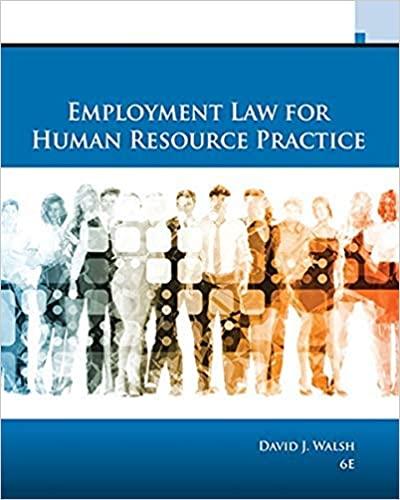In this putative class action, plaintiffs allege that defendants system for conducting background checks violates the Fair
Question:
In this putative class action, plaintiffs allege that defendant’s system for conducting background checks violates the Fair Credit Reporting Act (“FCRA”). Plaintiffs are employees who were fired by their employers, and potential employees who were denied employment, based on background checks that defendant conducted as a service to those employers. Defendant operates a proprietary system called “Esteem” that “helps organizations identify applicants with [a] history of theft or fraud.” Subscribing member employers (”members”) pay a fee based on the number of their employees, and defendant performs background checks on current and potential employees. Members must also give defendant new records of theft incidents involving their own employees and customers (“reports”). Members may only submit incident reports in one of two situations: (1) if the member referred the incident for criminal prosecution, or (2) if the employee admits guilt. If, as is alleged in this case, the employee admits guilt, the member employer includes an “admission statement”—a statement describing the incident and admitting guilt signed by the person who committed the theft—with the report. In this case, defendants took adverse action before the decision was reported to the employer, and the employer had no knowledge that plaintiff contested the report. In addition, defendant’s adverse action letter did not include a copy of the “admission statement” at issue, though plaintiffs had requested a copy of everything in the file, as they were entitled to under the statute.
1. What were the legal issues in this case? What did the court decide?
2. Which specific FCRA requirements were relevant to this case? How were these requirements violated by the defendant consumer reporting agency?
3. The court discusses the Obabueki v. IBM case and distinguishes it from the present case. How do these cases different, resulting in different outcomes?
4. Should the employers using the “Esteem” system continue to do so? Why or why not? Should they be liable for FCRA violations as well? Why or why not?
5. Both of the plaintiffs had signed “admission statements” in relation to their former employers’ theft allegations against them. Are employers justified in relying on such statements to deny employment opportunities? Why or why not? Would an employee sign such a statement if he or she did not engage in theft? Why or why not?
Step by Step Answer:






